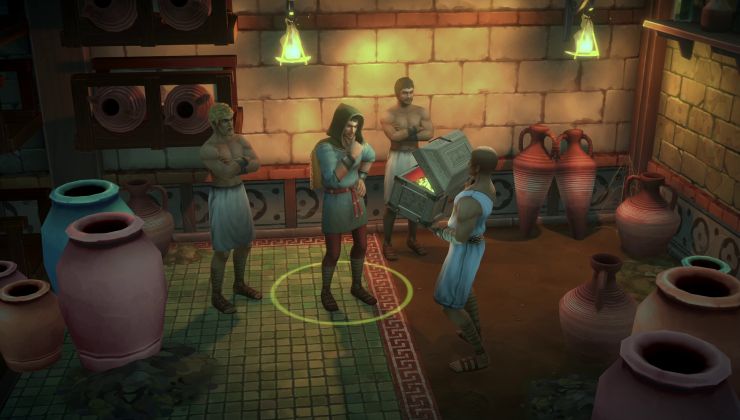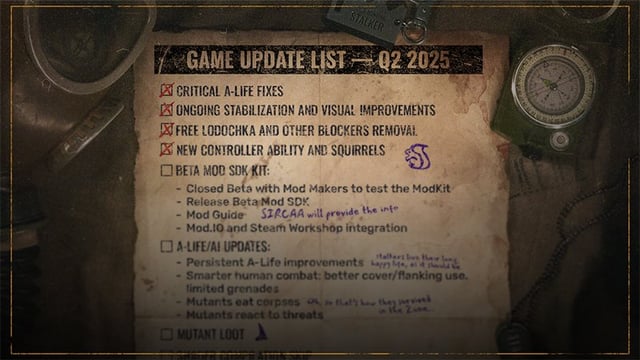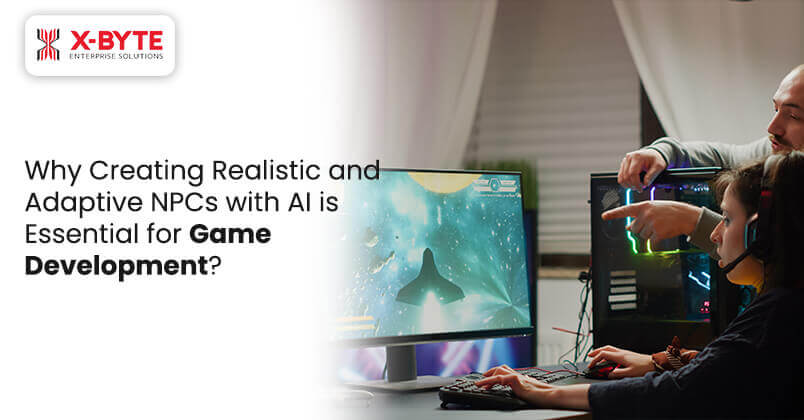The Rise of AI NPCs: Revolution or Ruin for Open-World PC Games?

For decades, PC gamers have dreamt of truly dynamic and reactive open worlds. We crave experiences where our actions have tangible consequences, where NPCs feel less like programmed automatons and more like actual inhabitants of a living, breathing world. The promise of Artificial Intelligence (AI)-driven NPCs and emergent storytelling has long been the holy grail, offering the potential to transcend the limitations of scripted events and deliver unparalleled levels of immersion. But as we stand on the cusp of this technological revolution, is it a genuine leap forward, or are we destined for another dose of hype followed by disillusionment? As a seasoned PC gamer and industry observer, I'm here to cut through the marketing noise and explore the potential – and the pitfalls – of AI in upcoming titles like Grand Theft Auto VI and Cyberpunk 2077. Get ready to upgrade your next-gen PC because the future is now.
Defining the Scope of AI Influence: From Rule-Based Systems to Large Language Models
Before we delve into specific titles, let's define what we mean by "AI-driven NPCs." It's not enough to say an NPC is "smart." We need to understand the underlying technology driving their behavior.
Rule-Based AI: This is the traditional approach, where NPCs follow pre-defined rules and scripts. Think of a guard who patrols a fixed route or a shopkeeper who repeats the same dialogue lines. While predictable, rule-based AI is computationally cheap and easy to implement.
Machine Learning-Driven Behavior: This involves training AI models on vast datasets to learn complex patterns and behaviors. Reinforcement learning, for example, can be used to train NPCs to navigate environments, make decisions, and even learn from their mistakes. This allows for more dynamic and adaptive behavior, as the NPCs can react to unexpected situations. However, machine learning models require significant computational resources and can be challenging to train and fine-tune, impacting AI NPC game performance.
Generative AI Dialogue: This is where things get really interesting. Large language models (LLMs) like GPT-3 can be used to generate natural language dialogue in real-time. This allows NPCs to have dynamic conversations with players, responding to their questions and actions in a more realistic and engaging way. Companies like Inworld AI, Convai, and Charisma.ai are developing middleware solutions that integrate LLMs into game engines, offering developers tools for creating truly interactive and believable NPCs. These tools often employ complex technical architectures involving neural networks and natural language processing algorithms. The trade-off is that LLMs are computationally expensive and require significant memory usage. Consider that adding advanced AI can make a PC game unplayable on hardware that isn't high-end. This will affect the advanced NPC gaming PC market.
The impact of AI extends beyond simple interactions. Dynamic quest generation, where quests are created on the fly based on player actions and world events, is a distinct possibility. Imagine stumbling upon a crime scene and, based on your investigation, a unique quest line emerges, tailored to your skills and interests. This is far more compelling than the standard "go here, kill that" formula.
However, we must be wary of the "emergent behavior" trap. Many games claim to offer emergent gameplay, but often, it's just a series of elaborately scripted events disguised as spontaneity. The challenge lies in creating systems that truly react to player agency without becoming predictable or breaking the game.

GTA VI and Cyberpunk 2077: A Tale of Two Cities (and Their AI)
Let's turn our attention to two of the most anticipated open-world PC games: Grand Theft Auto VI and Cyberpunk 2077. Both have the potential to push the boundaries of AI in gaming, but their approaches may differ significantly.
Grand Theft Auto VI: Rockstar Games is notoriously secretive about their development process, but their past titles offer clues. Red Dead Redemption 2's dynamic event system, where players could encounter random events and interact with NPCs in meaningful ways, suggests a willingness to experiment with emergent gameplay. Given the advancements in AI technology since then, it's likely that GTA VI will incorporate more sophisticated AI-driven NPC behavior. Rockstar might utilize proprietary AI tools developed in-house, or they could integrate existing middleware solutions to improve NPC realism in games. The extent to which they use machine learning and generative AI remains to be seen, but I expect them to push the envelope in terms of world reactivity and NPC interactions. The question is, will it be enough to warrant a new PC? Gamers are concerned about AI NPC system requirements.
Cyberpunk 2077: CD Projekt Red has been more open about their plans for Cyberpunk 2077. The initial release was criticized for its lackluster NPC AI, with NPCs often behaving predictably and failing to react realistically to player actions. However, the developers have pledged to address these shortcomings through future updates and expansions. Job postings and developer interviews suggest they're exploring AI tools and techniques to improve NPC behavior, including the possibility of migrating to a new game engine that better facilitates AI integration. CD Projekt Red are likely to improve NPC realism in games by updating Cyberpunk 2077.
Ethical Considerations and Potential Pitfalls: More Than Just Lines of Code
The increasing realism and believability of AI NPCs raise significant ethical considerations. As developers create virtual characters that are increasingly indistinguishable from real people, they have a responsibility to consider the potential impact on player empathy and behavior.
Desensitization to Violence and Exploitation: If NPCs are capable of displaying realistic emotions and reactions, does that make it more ethically problematic to harm or exploit them? Developers must consider the potential for their games to desensitize players to violence or normalize harmful behaviors.
Blurring the Lines Between Virtual and Real Relationships: As AI companions become more sophisticated, players may form emotional attachments to them. This raises questions about the nature of these relationships and the potential for exploitation. Developers must be mindful of the ethical implications of creating virtual characters that are designed to elicit emotional responses from players.
Job Displacement: The increased use of AI could lead to job displacement for game writers, designers, and voice actors. Will AI storytelling open world games replace humans? The industry must mitigate these potential negative consequences through retraining programs, new roles focused on AI curation and oversight, or alternative revenue models.
Homogenization of NPC Behavior: Could the reliance on AI result in a homogenization of NPC behavior or a decline in the quality of writing and character development? AI-generated responses may lack the nuance and creativity of human-written dialogue.

Actionable Advice for PC Gamers: Separating Hype from Reality
So, how can PC gamers critically evaluate the claims of AI advancements in upcoming games and know if they should start saving for a high end PC AI NPC gameplay experience? Here are a few tips:
Look for Specific Metrics: Don't just take the developer's word for it. Look for concrete examples of improved NPC behavior. Does the game show NPC behavior diversity measured by the range of actions and reactions observed? Is the dialogue naturalness assessed by grammatical correctness and contextual relevance? Does the world reactivity demonstrated by the consistency and believability of NPC responses to player actions? Are animations believable and achieved through motion capture or AI-assisted animation?
Analyze Gameplay Footage: Use tools and techniques to analyze gameplay footage frame-by-frame to identify the presence and effectiveness of AI systems. Compare NPC behavior across different playthroughs to see if it varies.
Wait for Independent Reviews: Don't rely solely on marketing materials. Wait for independent reviews and gameplay analyses, especially those conducted by technical experts.
Be Skeptical: Don't believe everything you see and hear. Be skeptical of hyperbolic marketing language and focus on tangible gameplay examples.
Developer Perspectives: Dissenting Voices and Early Adopters
Some developers are embracing AI, while others are more cautious. It's important to consider both sides of the story.
- CD Projekt Red: Developers at CD Projekt Red have mentioned using AI to improve Cyberpunk 2077's crowd behavior, making Night City feel more alive.
- Early Access Titles: Keep an eye on early-access PC games like "The Guild 3" or titles utilizing "Dwarf Fortress" type AI. These games can offer valuable insights into the potential – and the limitations – of AI in gaming.
- Dissenting Voices: Some developers have expressed concerns about the potential for AI to undermine the craft of game design, arguing that it could lead to a homogenization of content and a decline in creative control.
Future of PC Gaming and AI Integration: A Balanced View
Will AI truly revolutionize the open-world genre? That remains to be seen. It's important to have a balanced view, recognizing both the potential benefits and the potential drawbacks.
AI has the potential to enhance other aspects of PC gaming beyond NPCs, including procedural content generation of terrain and environments, adaptive difficulty scaling tailored to player skill levels, and AI-assisted modding that empowers players to create their own content. But it's not a silver bullet. It's a tool that must be used carefully and thoughtfully.

AI NPC Behavior Cost
The integration of AI NPCs into open-world PC games presents some of the finest challenges yet for PC systems, making AI NPC behavior cost a key concern for gamers. AI-driven characters demand more processing power than traditional, scripted ones, leading to potential performance issues, especially with the rise of realistic world population.
The Resource Intensity of AI NPCs: One significant consideration is the sheer resource intensity of AI NPCs. They require powerful CPUs to manage their decision-making processes, especially when using machine learning and reinforcement learning algorithms. This can strain even high-end systems, leading to decreased frame rates and other performance bottlenecks. As AI NPCs become more complex and numerous, the demands on your PC will only increase.
Generative AI's High VRAM Requirements: Another critical element is the need for substantial video memory (VRAM). Generative AI dialogue, driven by large language models (LLMs), consumes considerable VRAM to process and generate realistic conversations. The complexity and size of these models directly impact the performance of your PC, especially during heavy NPC interactions and dynamic conversations.
How Much VRAM for AI NPCs? Determining the ideal amount of VRAM for AI NPCs is crucial for optimal performance. While specific requirements will vary depending on the game and its implementation, a good starting point is to ensure your system has at least 8GB of VRAM for 1080p gaming and 12GB or more for higher resolutions like 1440p or 4K. Insufficient VRAM can result in stuttering, lag, and reduced texture quality, severely impacting the overall gaming experience.
The Cost of Optimization and Scalability: Developers face a complex challenge in optimizing AI NPC systems to balance performance and detail. Scalability is essential to accommodate a wide range of PC configurations, from budget-friendly to high-end rigs. Advanced optimization techniques, such as level-of-detail scaling for NPC behavior, can help reduce the strain on lower-end systems while still delivering a compelling experience on more powerful hardware.

Conclusion: A New Era of Immersion – With Caveats
AI-driven NPCs have the potential to revolutionize open-world PC gaming, creating truly dynamic and immersive experiences. As AI story telling progresses in open world games we will see more and more emergent situations. But it's important to approach this technology with a critical eye, recognizing both its potential and its pitfalls. As gamers, we need to demand transparency from developers, advocate for ethical AI practices, and be prepared to upgrade our systems to meet the demands of these new technologies. The future of PC gaming is undoubtedly intertwined with AI, but whether it's a revolution or a ruin depends on how we – developers and gamers alike – choose to embrace it. And by the way, make sure you have the best CPU for AI-driven games, your current one may not cut it.